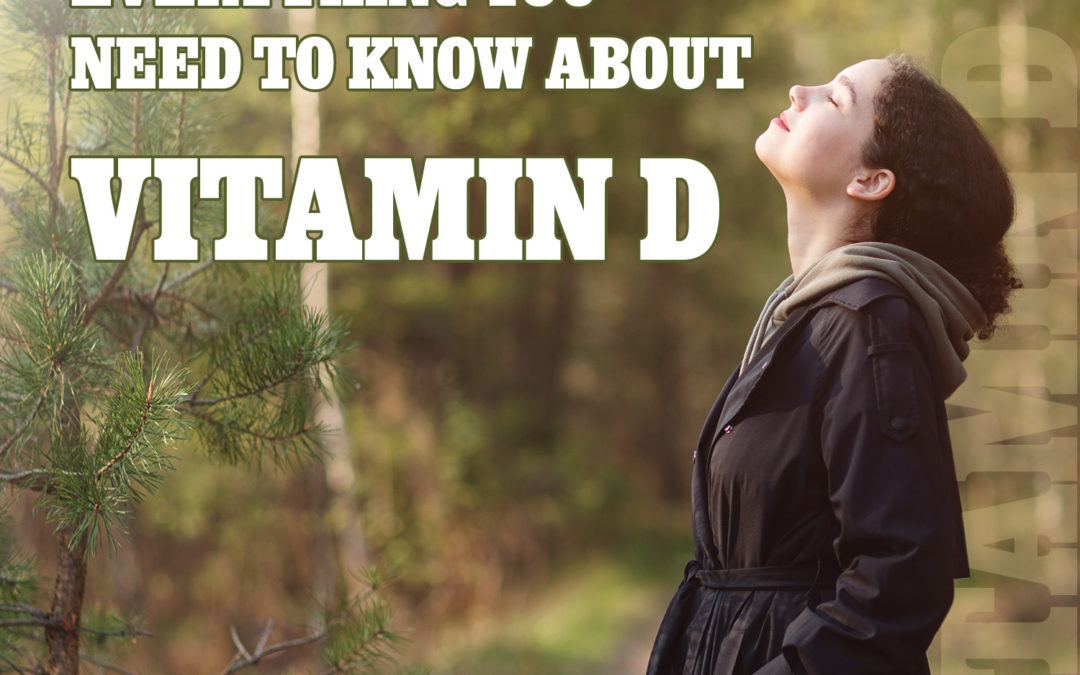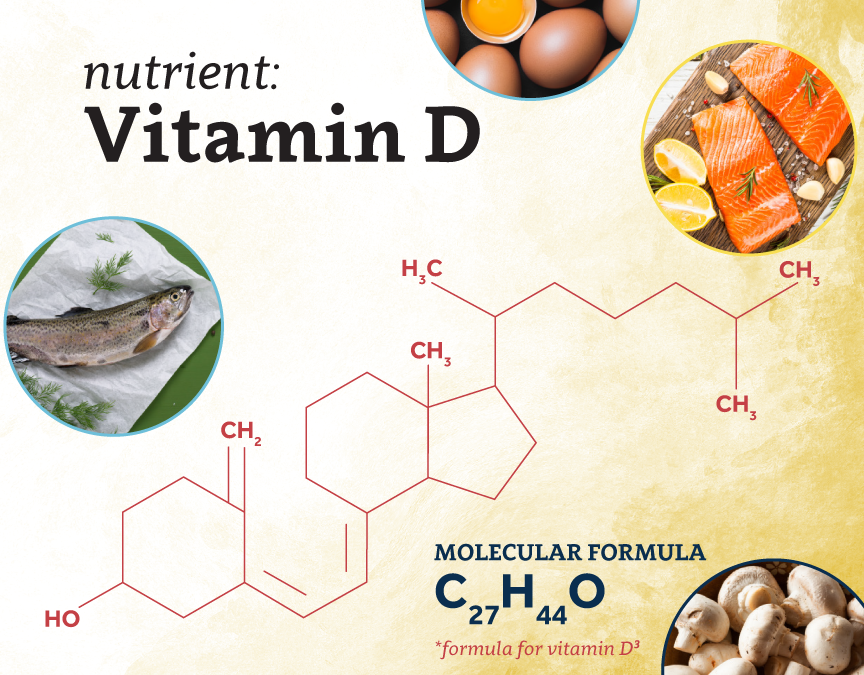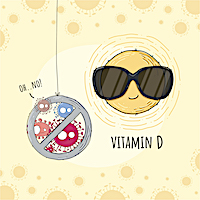


Nutrient: Vitamin D
Vitamin D is both a nutrient we eat and a hormone our bodies make when the skin is exposed to sunlight. It is a fat-soluble vitamin that has long been known to help the body absorb and retain calcium and phosphorus; both are critical for building bones. Also,...
Metabolic Effects of Vitamin D Deficiency: A Mouse Model of Precision Nutrition
The fundamental principle of precision nutrition is that different people, by virtue of their genetic backgrounds and life exposures, may have different nutritional needs. A compelling example of this principle is found in a recent publication by current NRI faculty...Vitamin D and SARS-CoV-2 virus/COVID-19 disease.
Avoidance of vitamin D deficiency to slow the COVID-19 pandemic.

Fighting Vitamin D Deficiency May Lower Risk of Contracting COVID-19 Especially among Common High-risk Groups
Vitamin D deficiency impedes good immune function and has been shown to contribute to the seasonal increase of viral respiratory infections, possibly including COVID-19. A combination of factors makes it likely that individuals are deficient in vitamin D: old age,...Maternal Vitamin D For Preventing Autism
July 27, 2017 – Vitamin D deficiency in pregnant moms is shown to negatively affect fetal growth and children’s health in the long run. Deficient gestational vitamin D status is surprisingly high both globally and in the US. One of the findings that draws attention is the role of vitamin D during pregnancy in children’s chances of developing Autism Spectrum Disorders (ASD). Vitamin D is acquired through sun exposure or food intake. The circulating form of vitamin D can travel through the fetal-placental barrier, thus, developing babies depend solely on their mothers for getting this beneficial nutrient.

